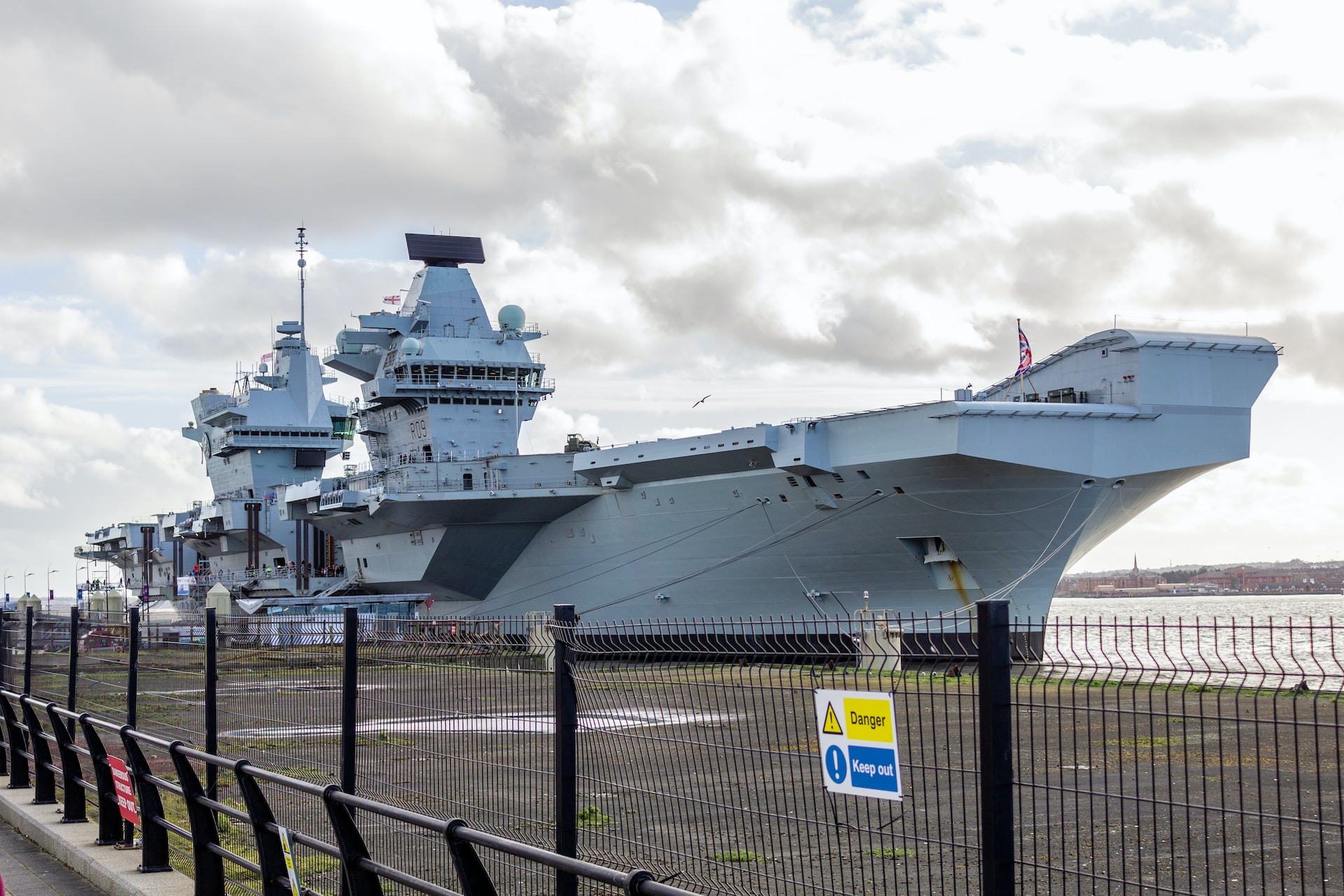Ready or Not? - UK Armed Forces Readiness

With a massive increase in rapid response forces announced at last year's NATO summit, the UK's Defence Committee is holding an inquiry into the readiness of the UK's Armed Forces. I watched the oral evidence session held on Tuesday 6th June with guests Dr Simon Anglim (Kings College London), Prof Justin Bronk (RUSI) and Nick Childs (The International Institute for Strategic Studies), and it was thought-provoking but also very sobering....
What do we mean by "readiness"?
A key question is what do we mean by readiness, and what do we need to be ready for? If we want to deter aggression from an adversary then we need to convince them that the cost of that aggression will be too high, and therefore they need to believe that we are "ready" to respond to that aggression. The Committee noted that hard data relating to Armed Forces readiness is classified, and the Defence Committee itself has little visibility of it, even privately.
The first topical question right now is are we ready to conduct a high-intensity campaign against Russia should they attack a NATO member, triggering a response under Article 5. The second is are we, along with our European allies, also ready to do so if the US is engaged in conflict with China in the Pacific and is consequently limited in the support in can provide to Europe?
The consensus today is a resounding no.
The good news is that we do not need to fight that war today. Russia remains bogged-down in Ukraine and China is not yet ready to launch a full-scale invasion of Taiwan. However, Justin Bronk predicted the window of peak vulnerability would be in 3 to 5 years time, with Russia transitioning to a war economy and re-arming, and China reaching readiness for an invasion of Taiwan. So we have maybe 3 years to prepare, and hence hopefully deter, further Russian aggression in Europe.
But we've just had a Defence Review Refresh?
Simon Anglim pointed out that the 2021 Defence Review, and even the 2023 Refresh, still don't prepare the UK for a high intensity war in Europe. They correctly identify threats and highlight the importance of supporting Ukraine, and the global aspirations to be engaged in the Indo-Pacific and Middle East also remain. But there is no prioritisation, and the UK defence budget simply isn't big enough to effectively meet all of the global aspirations. If we want to be ready for a big war in Europe, we either need a big increase in defence spending, or to focus exclusively on preparing for that at the cost of withdrawing from commitments in other parts of the world (or both).
The British Army isn't big enough, or equipped to be, both a NATO-focused force to defend Europe AND maintain an expeditionary capability. We need to decide which it needs to be.
It's essential to train for what you want to be ready for...
Regularly training our armed forces to prepare for the roles and missions we require of them is absolutely essential. Yet we have, largely by choice, a situation where the UK cannot conduct mass exercises at scale to prepare for high-intensity war against a peer adversary. Because the UK at any given time has many small-scale deployments underway, with handfuls of aircraft, single ships and small units of soldiers dispersed all around the globe. These small-scale deployments do not prepare our armed forces for large-scale action.
Justin Bronk made an interesting observation that the current cohort of Senior Officers in the UK have only ever experienced 'managed decline' of personnel and equipment numbers, and feel incentivised to make sure their units are seen to be 'busy' to protect them against future cuts. This is one reason for the enthusiasm for ongoing small-scale deployments, but this prevents large scale training exercises for a major war.
Air Superiority is key
It was noted that establishing air superiority would be key to defeating Russian aggression, which would involve engaging cruise missile attacks against strategic targets in the UK and elsewhere as well as protecting NATO ground forces. Justin Bronk stated that as the well-publicised issues with UK military flight training get addressed, the limited factor on generating flying hours has moved to the availability of spares and engineering personnel. The RAF has a growing retention issue with experienced engineers, increasing the burden on those that remain which further exasperates retention problems.
The UK has also become excessively dependent on synthetic training for pilots, reaching a ratio of 80% / 20% (synthetic / live). While there is much value in synthetic training, it does not fully prepare and train pilots with the necessary realism to conduct combat missions under high-G manoeuvres and in all weather conditions. RAF pilots are also 'generalists', and unlike other air forces pilots do not specialise in air superiority or ground attack missions. Coupled with the lack of live training, the generalist approach makes it harder for pilots to achieve excellence in any given mission.
With combat aircraft now concentrated in a small number of bases, the UK should be looking at how they can be better protected from cruise missile attack. This should include new and improved hardened shelters and ground-based air defence. Sky Sabre is an excellent air defence system that is very capable of engaging cruise missiles, but the British Army simply doesn't have enough of them to defend fixed bases in the UK as well as protecting forward deployed forces.
NATO Rapid Response Plans
At the 2022 NATO summit in Madrid, it was announced that NATO would dramatically increase it's rapid response forces from 40,000 to 300,000 troops. Yet the plans are still vague on where those troops will come from, and just how ready they will be. While 'tripwire' forces are currently stationed in the Baltic states for instance, those states would understandably like the reassurance that reinforcements would arrive rapidly before an invasion takes place, rather than after large amounts of territory in their countries have been ceded and need to be won back.
The UK and other European countries face some significant challenges, and some hard choices. The best way to avoid further war in Europe is to convince Russia that we are both prepared to fight it, and equipped to win it. We currently aren't, and getting to the necessary state of readiness will require significant re-focusing of the UK's defence priorities towards NATO and away from other smaller global deployments as well as some sustained increases in defence spending, with the 'aspiration' of 2.5% of GDP quickly becoming reality.

